- Home
- Roald Dahl
My Uncle Oswald Page 7
My Uncle Oswald Read online
Page 7
'Don't often taste stuff like this,' he said. He was very comfortable in an old armchair with his pipe lit and a glass of port in his hand. What a thoroughly decent man he was, I thought. And what a terribly dull life he leads.
I decided to liven things up a bit by telling him about my time in Paris six years before in 1913 when I had made one hundred thousand pounds out of Blister Beetle pills. I started at the beginning. Very quickly I got caught up in the fun of storytelling. I remembered everything, but in deference to my tutor, I left out the more salacious details. It took me nearly an hour to tell.
A. R. Woresley was enraptured by the whole escapade. 'By gad, Cornelius!' he cried. 'What a nerve you've got! What a splendid nerve! And now you are a very wealthy young man!'
'Not wealthy enough,' I said. 'I want to make a million pounds before I'm thirty.'
'And I believe you will,' he said. 'I believe you will. You have a flair for the outrageous. You have a nose for the successful stunt. You have the courage to act swiftly. And what's more, you are totally unscrupulous. In other words, you have all the qualities of the nouveau riche millionaire.'
'Thank you,' I said.
'Yes, but how many boys of seventeen would have gone all the way out to Khartoum on their own to look for a powder that might not even have existed? Precious few.'
'I wasn't going to miss a chance like that,' I said.
'You have a great flair, Cornelius. A very great flair. I am a little envious of you.'
We sat there drinking our port. I was enjoying a small Havana cigar. I had offered one to my host but he preferred his stinking pipe. That pipe of his made more smoke than any other pipe I had ever seen. It was like a miniature warship laying a smokescreen in front of his face. And behind the smokescreen, A. R. Woresley was brooding on my Paris story. He kept snorting and grunting and mumbling things like 'Remarkable exploit!... What a nerve!... What panache!... Good chemistry, too, making those pills.'
Then there was silence. The smoke billowed around his head. The glass of port disappeared through the smokescreen as he put it to his lips. Then it reappeared, empty. I had talked enough, so I kept my peace.
'Well, Cornelius,' A. R. Woresley said at last. 'You have just given me your confidence. Perhaps I had better give you mine in return.'
He paused. I waited. What's coming, I wondered.
'You see,' he said, 'I myself have also had a little bit of a coup in the last few years.'
'You have?'
'I'm going to write a paper on it when I get the time. And I might even be successful in getting it published.'
'Chemistry?' I asked.
'A bit of chemistry,' he said. 'And a good deal of bio-chemistry. It's a mixture.'
'I'd love to hear about it.'
'Would you really?' He was longing to tell it.
'Of course,' I poured him another glass of port. 'You've got plenty of time,' I said, 'because we're going to finish this bottle tonight.'
'Good,' he said. Then he began his story.
'Exactly fourteen years ago,' he said, 'in the winter of 1905, I observed a goldfish frozen solid in the ice in my garden pond. Nine days later there was a thaw. The ice melted and the goldfish swam away, apparently none the worse. That set me thinking. A fish is cold-blooded. So what other forms of cold-blooded life could be preserved at low temperatures? Quite a few, I guessed. And from there, I began speculating about preserving bloodless life at low temperatures. By bloodless I mean bacteria, etcetera. Then I said to myself, "Who wants to preserve bacteria? Not me." So then I asked myself another question. "What living organism above all others would you like to see kept alive for very long periods?" And the answer came back, spermatozoa!'
'Why spermatozoa?' I asked.
'I'm not quite sure why,' he said, 'especially as I'm a chemist, not a bio man. But I had a feeling that somehow it would be a valuable contribution. So I started my experiments.'
'What with?' I asked.
'With sperm, of course. Living sperm.'
'Whose?'
'My own.'
In the little silence that followed, I felt a twinge of embarrassment. Whenever someone tells me he has done something, no matter what it is, I simply cannot help conjuring up a vivid picture of the scene. It's only a flash, but it always happens and I was doing it now. I was looking at scruffy old A. R. Woresley in his lab, as he did what he had to do for the sake of his experiments, and I felt embarrassed.
'In the cause of science everything is permissible,' he said, sensing my discomfort.
'Oh, I agree. I absolutely agree.'
'I worked alone,' he said, 'and mostly late at night. Nobody knew what I was up to.'
His face disappeared again behind the smokescreen, then swam back into view.
'I won't recite the hundreds of failed experiments I did,' he said. 'I shall speak instead of my successes. I think you may find them interesting. For example, the first important thing I discovered was that exceedingly low temperatures were required to keep spermatozoa alive for any length of time. I kept freezing the semen to lower and still lower temperatures, and with each lowering of the temp I got a longer and longer life span. By using solid carbon dioxide, I was able to freeze my semen down to -97deg Centigrade. But even that wasn't enough. At minus ninety-seven the sperm lived for about a month but no more. "I must go lower," I told myself. But how could I do that? Then I hit upon a way to freeze the stuff all the way down to -197deg Centigrade.'
'Impossible,' I said.
'What do you think I used?'
'I haven't the foggiest.'
'I used liquid nitrogen. That did it.'
'But liquid nitrogen is tremendously volatile,' I said. 'How could you prevent it from vaporizing? What did you store it in?'
'I devised special containers,' he said. 'Very strong and rather elaborate vacuum flasks. In these, the nitrogen remained liquid at minus one nine seven degrees virtually for ever. A little topping up was required now and again, but that was all.'
'Not for ever, surely.'
'Oh, yes,' he said. 'You are forgetting that nitrogen is a gas. If you liquefy a gas, it will stay liquid for a thousand years if you don't allow it to vaporize. And you do this simply by making sure that the flask is completely sealed and efficiently insulated.'
'I see. And the sperm stayed alive?'
'Yes and no,' he said. 'They stayed alive long enough to tell me I'd got the right temperature. But they did not stay alive indefinitely. There was still something wrong. I pondered this and in the end I decided that what the sperm needed was some sort of a buffer, an overcoat if you like, to cushion them from the intense cold. And after experimenting with about eighty different substances, I at last hit on the perfect one.'
'What was it?'
'Glycerol.'
'Just plain glycerol?'
'Yes. But even that didn't work at first. It didn't work properly until I also discovered that the cooling process must be done very gradually. Spermatozoa are delicate little fellows. They don't like shocks. You cause them distress if you subject them straight away to minus one nine seven degrees.'
'So you cool d them gradually?'
'Exactly. Here is what you must do. You mix the sperm with the glycerol and put it in a small rubber container. A test tube is no good. It would crack at low temperatures. And by the way, you must do all this as soon as the sperm has been obtained. You must hurry. You cannot hang about or it will die. So first you put your precious package on ordinary ice to reduce the temperature to freezing point. Next, you put it into nitrogen vapour to freeze it deeper. Finally you pop it into the deepest freeze of all, liquid nitrogen. It's a step by step process. You acclimatize the sperm gradually to coldness.'
'And it works?'
'Oh, it works all right. I am quite certain that sperm which has been protected with glycerol and then frozen slowly will stay alive at minus one nine seven for as long as you like.'
'For a hundred years?'
'Absolutely, provided y
ou keep it at minus one nine seven degrees.'
'And you could thaw it out after that time and it would fertilize a woman?'
'I'm quite sure of it. But having got that far I began to lose interest in the human aspect. I wanted to go a lot further. I had many more experiments to do. But one cannot experiment with men and women, not in the way I wanted to.'
'How did you want to experiment?'
'I wanted to find out how much sperm wastage there was in a single ejaculation.'
'I'm not with you. What d'you mean by sperm wastage?'
'The average ejaculation from a large animal such as a bull or a horse produces five ccs of semen. Each cc contains one thousand million separate spermatozoa. This means five thousand million sperm altogether.'
'Not five thousand million! Not in one go!'
'That's what I said.'
'It's unbelievable.'
'It's true.'
'How much does a human produce?'
'About half that. About two ccs and two thousand million.'
'You mean to tell me,' I said, 'that every time I pleasure a young lady, I shoot into her two thousand million spermatozoa?'
'Absolutely.'
'All squiggling and squirming and thrashing about?'
'Of course.'
'No wonder it gives her a charge,' I said.
A. R. Woresley was not interested in that aspect. 'The point is this,' he said. 'A bull, for example, definitely does not need five thousand million spermatozoa in order to achieve fertilization with a cow. Ultimately, he needs only a single sperm. But in order to make sure of hitting the target, he has to use a few million at least. But how many million? That was my next question.'
'Why?' I asked.
'Because, my dear fellow, I wanted to find out just how many females, whether they were cows, mares, humans or whatever, could ultimately be fertilized by a single ejaculation. I was assuming, of course, that all those millions of sperm could be divided up and shared among them. Do you see what I'm driving at?'
'Perfectly. What animals did you use for these experiments?'
'Bulls and cows,' A. R. Woresley said. 'I have a brother who owns a small dairy farm over at Steeple Bumpstead not far from here. He had a bull and about eighty cows. We had always been good friends, my brother and I. So I confided in him, and he agreed to let me use his animals. After all, I wasn't going to hurt them. I might even do him a favour.'
'How could you do him a favour?'
'My brother has never been well-off. His own bull, the only one he could afford, was of moderate quality. He would dearly love to have had his whole herd of cows bear calves by a splendid prize bull from very high milk-yielding stock.'
'You mean someone else's bull?'
'Yes, I do.'
'How would you go about obtaining semen from someone else's valuable prize bull?'
'I would steal it.'
'Ah-ha.'
'I would steal one ejaculation, and then, provided of course that I was successful with my experiments, I would share out that single ejaculation, those five thousand million sperm, among all of my brother's eighty cows.'
'How would you share it out?' I asked.
'By what I call hypodermic insemination. By injecting the sperm into the cow with a syringe.'
'I suppose that's possible.'
'Of course it's possible,' he said. 'After all, the male sexual organ is itself really nothing more than a syringe for injecting semen.'
'Steady on,' I said. 'Mine's a bit more than that.'
'I don't doubt it, Cornelius, I don't doubt it,' he answered dryly. 'But shall we stick to the point?'
'Sorry.'
'So I started experimenting with bulls' semen.'
I picked up the bottle of port and refilled his glass. I had the feeling now that old Woresley was on to something pretty interesting and I wanted to keep him going.
'I've told you,' he said, 'that the average bull produces about five ccs of fluid each time. That's not much. Even when mixed with glycerol there wouldn't be enough there for me to start dividing it up into a great many parts and then expect to be able to inject each of those tiny parts into separate cows. So I had to find a dilutant, something to increase the volume.'
'Why not add more glycerol?'
'I tried it. It didn't work. Altogether too viscous. I won't bore you with a list of all the curious substances I experimented with. I will simply tell you the one that works. Skimmed milk works. Eighty per cent skimmed milk, ten per cent egg yolk and ten per cent glycerol. That's the magic mixture. The sperm love it. You simply mix the whole cocktail thoroughly, and that, as you can see, gave me a practical volume of fluid to experiment with. So for several years, I worked with my brother's cows, and finally I arrived at the optimum dose.'
'What was it?'
'The optimum dose was no more than twenty million spermatozoa per cow. When I injected that into a cow at the right time, I got eighty per cent pregnancies. And don't forget, Cornelius,' he went on excitedly, 'that each bull's ejaculation contains five thousand million sperm. Divided up into doses of twenty million, that gives two hundred and fifty separate doses! It was amazing! I was flabbergasted!'
'Does that mean,' I said, 'that with just one of my own ejaculations I could make two hundred and fifty women pregnant?'
'You are not a bull, Cornelius, much as you may like to think you are.'
'How many females could one of my ejaculations do?'
'About a hundred. But I am not about to help you.'
By God, I thought, I could knock up about seven hundred women a week at that rate! 'Have you actually proved this with your brother's bull?' I asked.
'Many times,' A. R. Woresley said. 'It works. I collect one ejaculation, then I quickly mix it up with skimmed milk, egg yolk and glycerol, then I measure it into single doses before freezing.'
'What volume of fluid in each dose?' I asked.
'Very small. Just half a cc.'
'Is that all you inject into the cow, just half a cc of fluid?'
'That's all. But don't forget there's twenty million living spermatozoa in that half cc.'
'Ah, yes.'
'I put these little doses separately into small rubber tubes,' he said. 'I call them straws. I seal both ends, then I freeze. Just think of it, Cornelius! Two hundred and fifty highly potent straws of spermatozoa from a single ejaculation!'
'I am thinking about it,' I said. 'It's a bloody miracle.'
'And I can store them for as long as I like, deep frozen. All I have to do when a cow starts bulling is take out one straw from the liquid nitrogen flask, thaw it, which doesn't take a minute, transfer the contents to a syringe and shoot it into the cow.'
The bottle of port was three-quarters empty now and A. R. Woresley was getting a bit tipsy. I refilled his glass again.
'What about this prize bull you were talking about?' I said.
'I'm coming to that, my boy. That's the lovely part of the whole thing. That's the dividend.'
'Tell me.'
'Of course I'll tell you. So I said to my brother... this was three years ago, right in the middle of the war... my brother was exempt from the army, you see, because he was a farmer... so I said to Ernest, "Ernest," I said, "if you had the choice of any bull in England to service your entire herd, which one would you choose?"
' "I don't know about in England," Ernest said, "but the finest bull in these parts is Champion Glory of Friesland, owned by Lord Somerton. He's a pure-bred Friesian, and those Friesians are the best milk producers in the world. My God, Arthur," he says, "you should see that bull! He's a giant! He cost ten thousand pounds and every calf he gets turns out to be a tremendous milker!"
' "Where is this bull kept?" I asked my brother.
' "On Lord Somerton's estate. That's over in Birdbrook."
' "Birdbrook? That's quite close, isn't it?"
' "Three miles away," my brother said. "They've got around two hundred pedigree Friesian dairy cattle and the bull runs with th
e herd. He's beautiful, Arthur, he really is."
' "Right," I said. "In the next twelve months, eighty per cent of your cows are going to have calves by that bull. Would you like that?"
' "Like it!" my brother said. "It would double my milk-yield." Could I trouble you, my dear Cornelius for one last glass of your excellent port?'
I gave him what there was. I even gave him the lees in the bottom of the bottle. 'Tell me what you did,' I said.
'We waited until one of my brother's cows was bulling good and proper. Then, in the dead of night... this took courage, Cornelius, it took a lot of courage...'
'I'm sure it did.'
'In the dead of night, Ernest put a halter on the cow and he led her along the country lanes to Lord Somerton's place three miles away.'
'Didn't you go with them?'
'I went beside them on a bicycle.'
'Why the bicycle?'
'You'll see in a moment. It was the month of May, nice and warm, and the time was around one in the morning. There was a bit of a moon shining which made it more dangerous, but we had to have some light to do what we were going to do. The journey took us an hour.
' "There you are," my brother said. "Over there. Can you see them?"
'We were by a gate leading into a twenty-acre field and in the moonlight I could see the great herd of Friesians grazing all over the field. To one side, not far away, was the big house itself, Somerton Hall. There was a single light in one of the upstairs windows. "Where's the bull?" I said.
' "He'll be in there somewhere," my brother said. "He's with the herd."
'Our cow,' A. R. Woresley said to me, 'was mooing away like mad. They always do when they're bulling. They're calling the bull, you see. The gate into the field was padlocked with a chain, but my brother was ready for that. He pulled out a hacksaw and sawed through the chain. He opened the gate. I leaned my bike against the hedge and we went into the field, leading the cow. The field was milky white in the moonlight. Our cow, sensing the presence of other animals, began mooing louder than ever.'

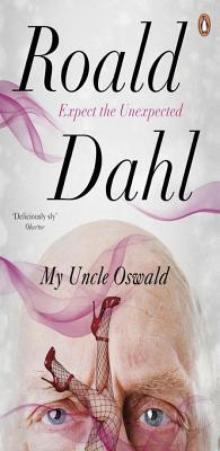 My Uncle Oswald
My Uncle Oswald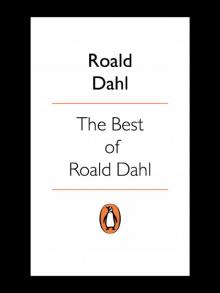 The Best of Roald Dahl
The Best of Roald Dahl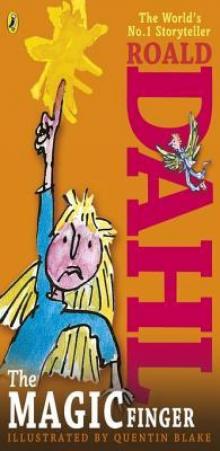 The Magic Finger
The Magic Finger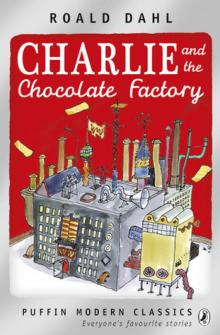 Charlie and the Chocolate Factory
Charlie and the Chocolate Factory Fantastic Mr Fox
Fantastic Mr Fox Matilda
Matilda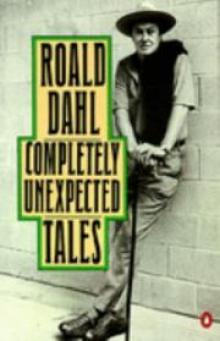 Completely Unexpected Tales: Tales of the Unexpected. More Tales of the Unexpected
Completely Unexpected Tales: Tales of the Unexpected. More Tales of the Unexpected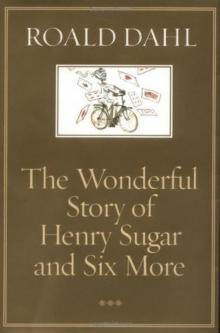 The Wonderful Story of Henry Sugar and Six More
The Wonderful Story of Henry Sugar and Six More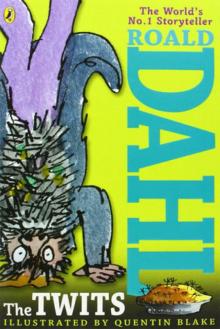 The Twits
The Twits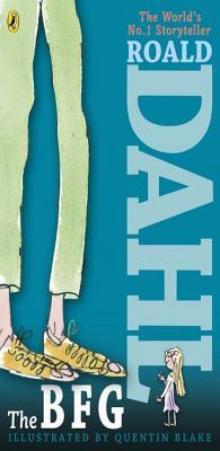 The BFG
The BFG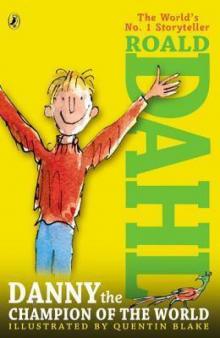 Danny the Champion of the World
Danny the Champion of the World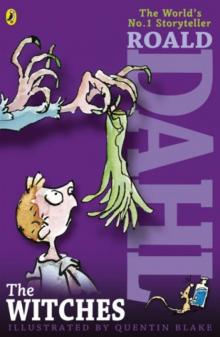 The Witches
The Witches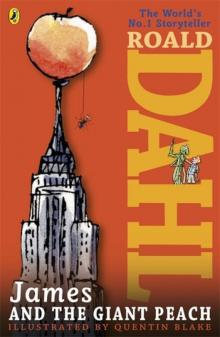 James and the Giant Peach
James and the Giant Peach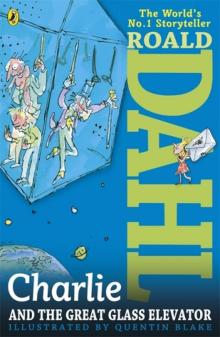 Charlie and the Great Glass Elevator
Charlie and the Great Glass Elevator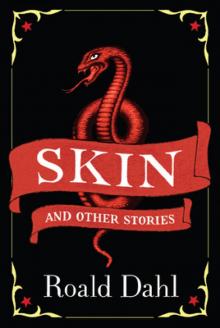 Skin and Other Stories
Skin and Other Stories Kiss Kiss
Kiss Kiss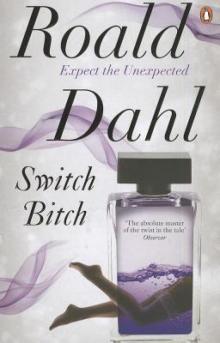 Switch Bitch
Switch Bitch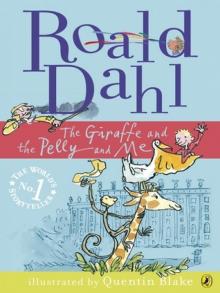 The Giraffe and the Pelly and Me
The Giraffe and the Pelly and Me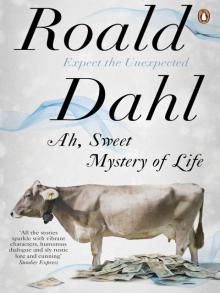 Ah, Sweet Mystery of Life
Ah, Sweet Mystery of Life Fear
Fear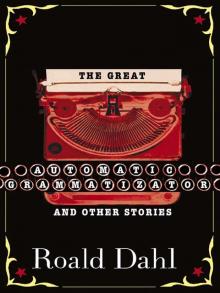 The Great Automatic Grammatizator and Other Stories
The Great Automatic Grammatizator and Other Stories Someone Like You
Someone Like You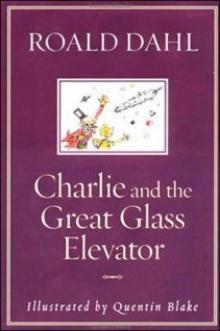 Charlie and the Great Glass Elevator c-2
Charlie and the Great Glass Elevator c-2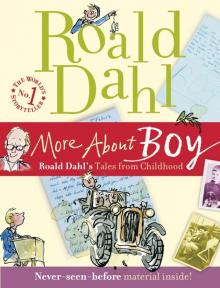 More About Boy
More About Boy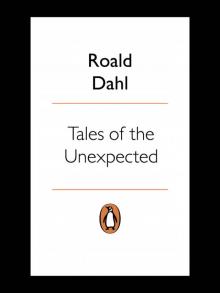 Tales of the Unexpected
Tales of the Unexpected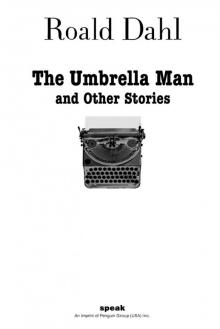 The Umbrella Man and Other Stories
The Umbrella Man and Other Stories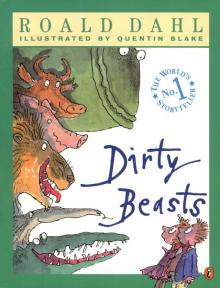 Dirty Beasts
Dirty Beasts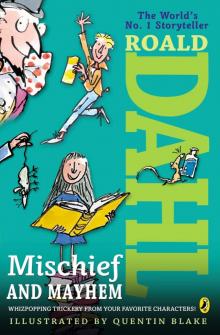 Roald Dahl's Mischief and Mayhem
Roald Dahl's Mischief and Mayhem The Collected Short Stories of Roald Dahl, Volume 1
The Collected Short Stories of Roald Dahl, Volume 1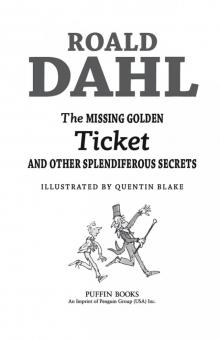 The Missing Golden Ticket and Other Splendiferous Secrets
The Missing Golden Ticket and Other Splendiferous Secrets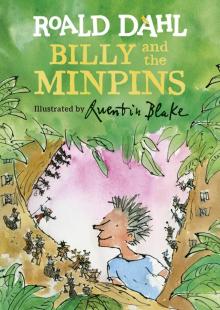 Billy and the Minpins
Billy and the Minpins Over to You
Over to You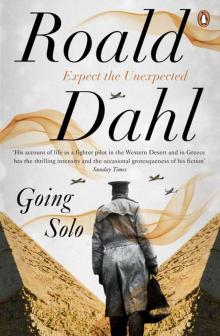 Going Solo
Going Solo Deception
Deception War
War Man from the South ee-3
Man from the South ee-3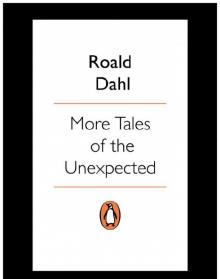 More Tales of the Unexpected
More Tales of the Unexpected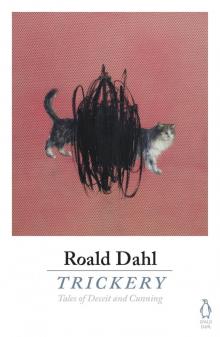 Trickery
Trickery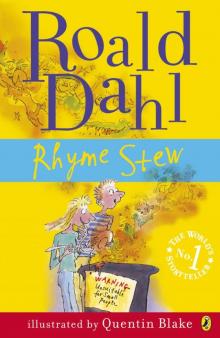 Rhyme Stew
Rhyme Stew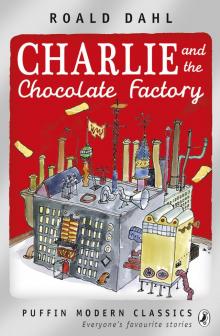 Charlie and the Chocolate Factory (Puffin Modern Classics relaunch)
Charlie and the Chocolate Factory (Puffin Modern Classics relaunch)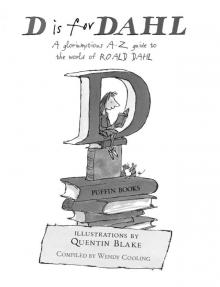 D is for Dahl
D is for Dahl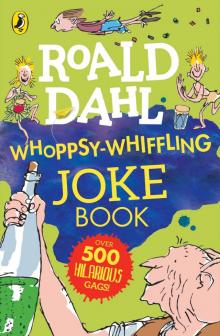 Roald Dahl Whoppsy-Whiffling Joke Book
Roald Dahl Whoppsy-Whiffling Joke Book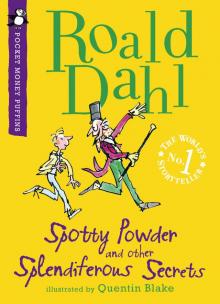 Spotty Powder and other Splendiferous Secrets
Spotty Powder and other Splendiferous Secrets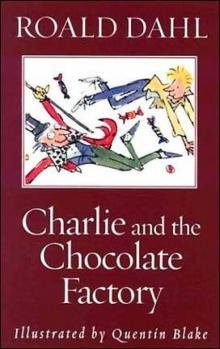 Charlie and the Chocolate Factory c-1
Charlie and the Chocolate Factory c-1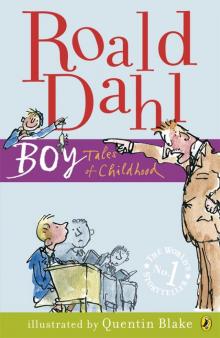 Boy
Boy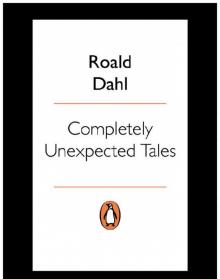 Completely Unexpected Tales
Completely Unexpected Tales Madness
Madness Innocence
Innocence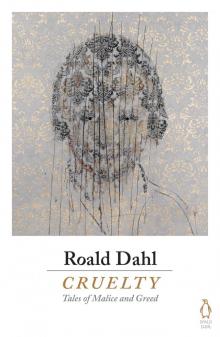 Cruelty
Cruelty George's Marvellous Medicine
George's Marvellous Medicine